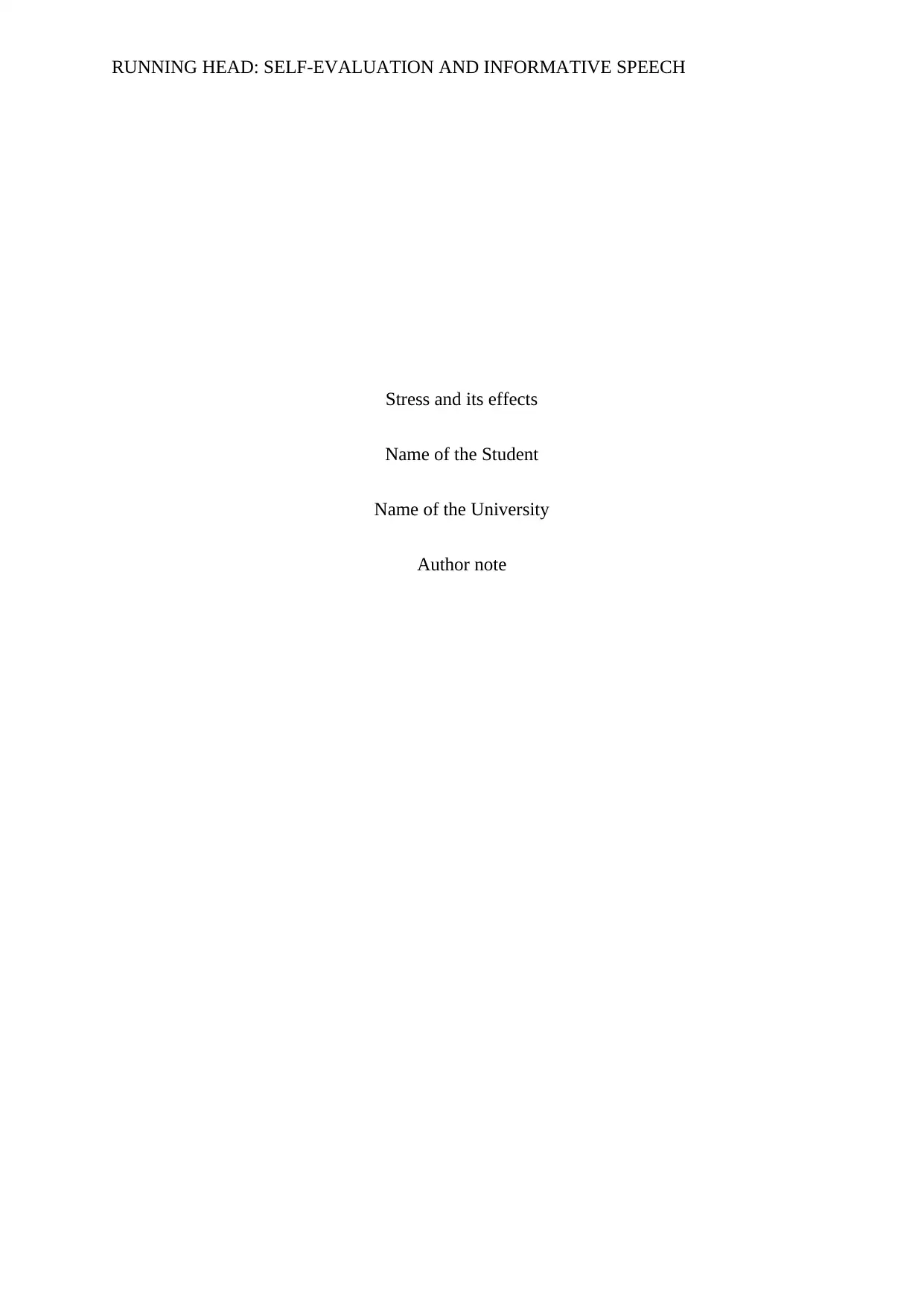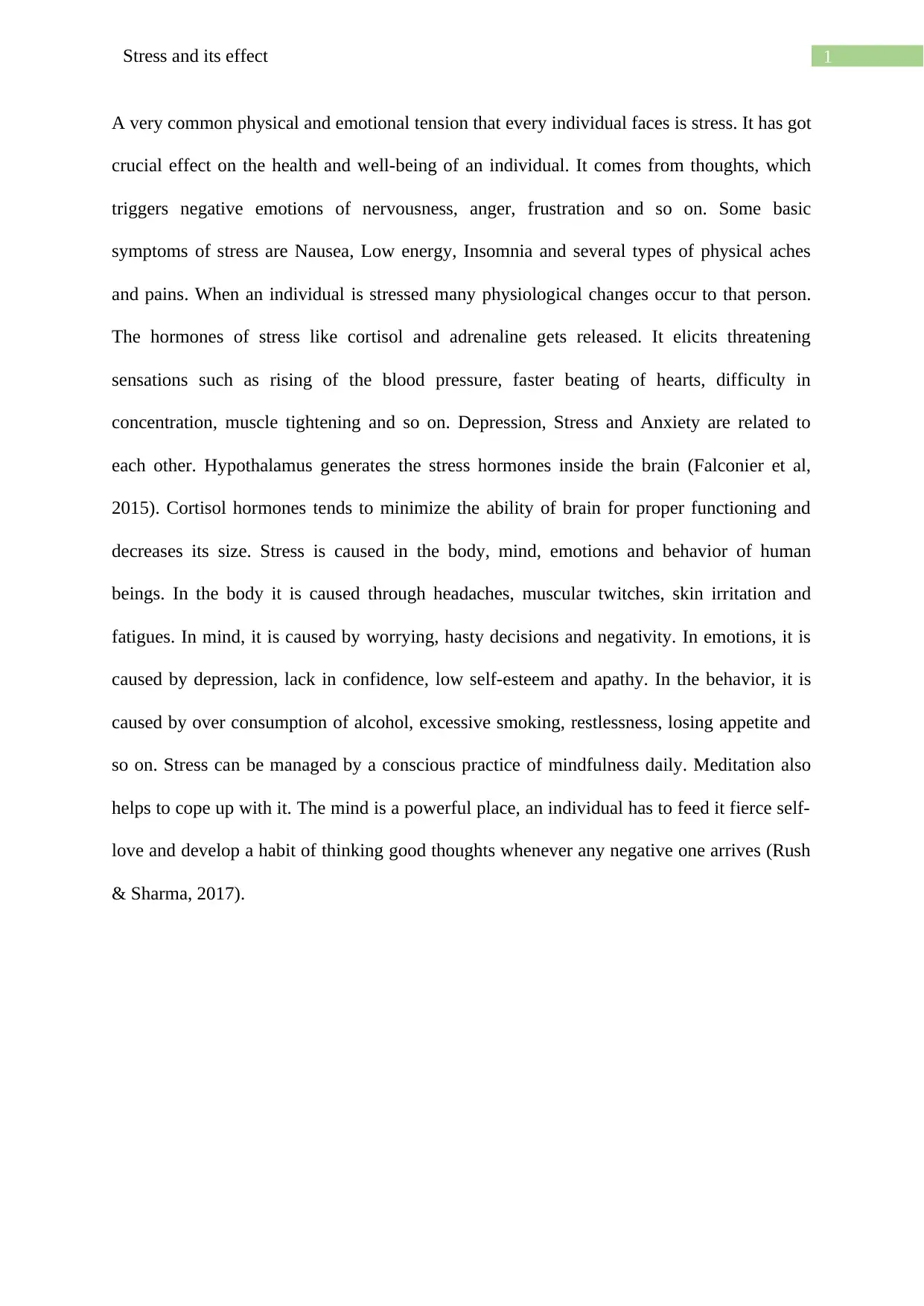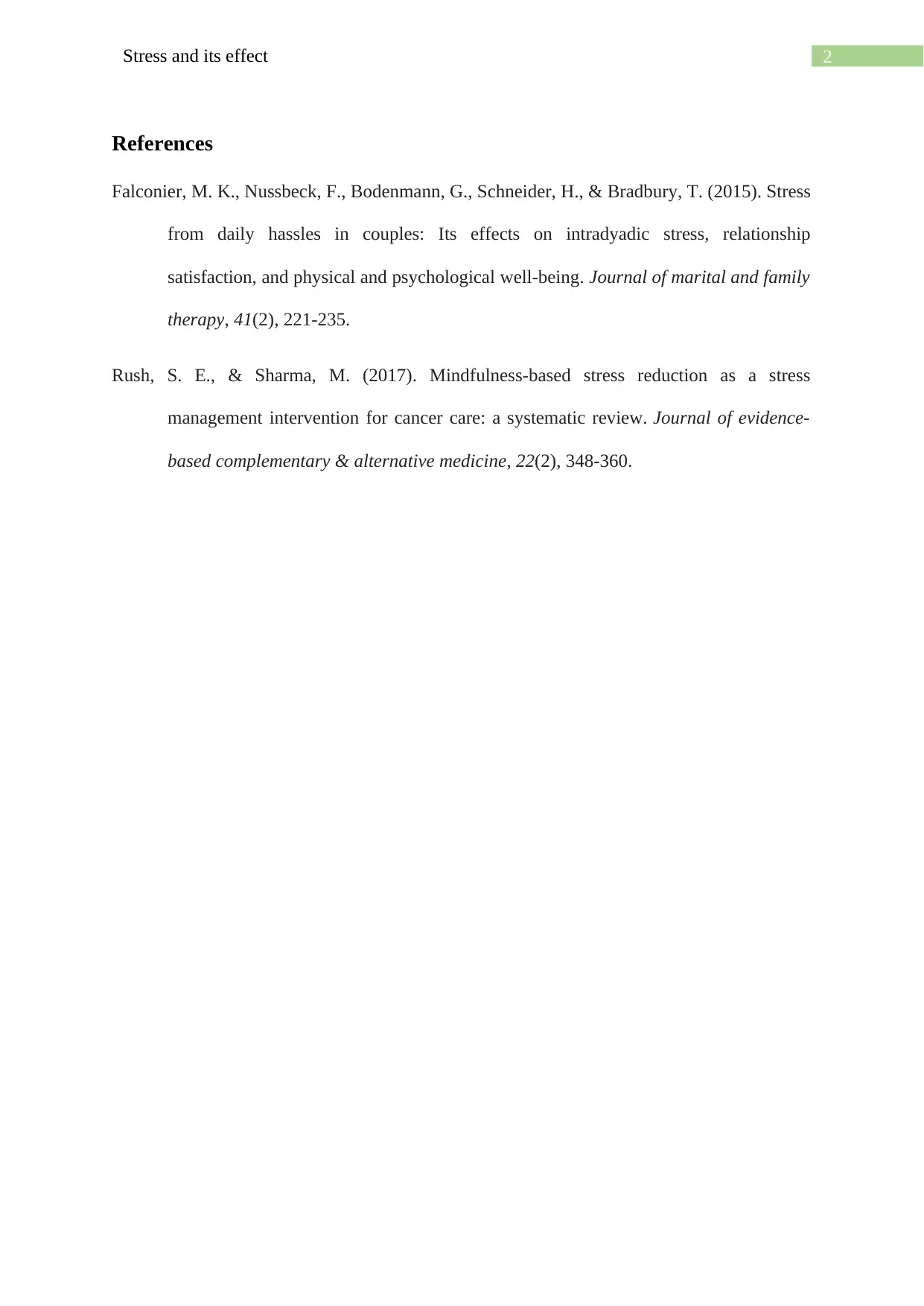A Psychological Report on Stress and its Effects on Individuals
VerifiedAdded on 2022/10/02
|3
|446
|51
Report
AI Summary
This report explores the multifaceted effects of stress on individuals, encompassing both physical and psychological dimensions. It begins by defining stress and its common manifestations, such as headaches, fatigue, and emotional distress like anxiety and depression. The report delves into the physiological mechanisms of stress, highlighting the roles of hormones like cortisol and adrenaline, and their impact on the body. It further examines the interconnectedness of stress, depression, and anxiety, emphasizing the brain's role in stress response. The report also provides practical strategies for managing stress, including mindfulness practices and the cultivation of positive thought patterns. This report utilizes references to support the findings.
1 out of 3









![[object Object]](/_next/static/media/star-bottom.7253800d.svg)